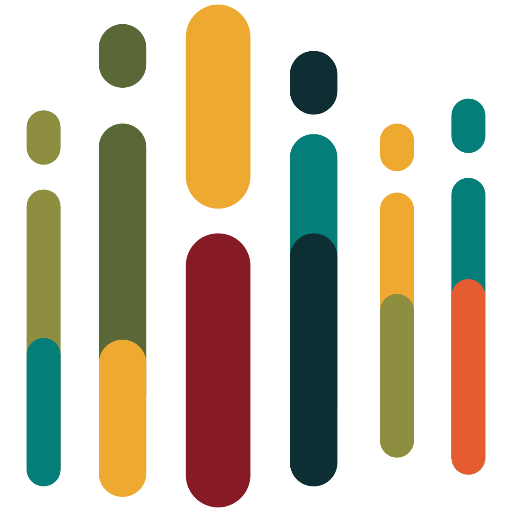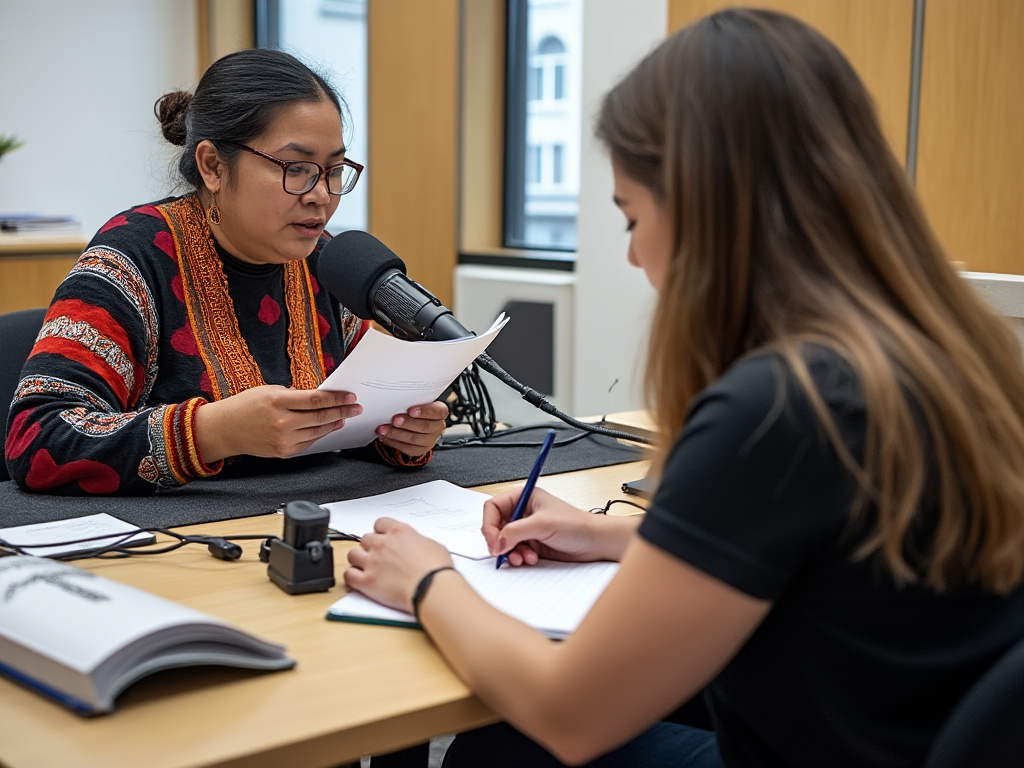Notice: Test mode is enabled. While in test mode no live donations are processed.
Why we are starting with Luxembourgish
Details
READING TIME
10 min
CATEGORY
Informative
AUTHOR
Daniel Knevitz
TOPIC
Preservation
When you think of endangered languages, Luxembourgish might not be the first language that comes to mind. Yet, as part of our mission to preserve and document the world’s threatened linguistic diversity, starting with Luxembourgish offers a unique and strategic opportunity to create a model for language preservation that can later be applied to other, more critically endangered languages. While Luxembourgish may not be on the brink of extinction, there are several important reasons why this language is the perfect starting point for our NGO’s project.
1. Luxembourgish: The “Easy Mode” for Language Preservation
While Luxembourgish is a vulnerable language, it is not in immediate danger of disappearing. This gives us a rare opportunity to build a robust and effective language preservation system before the urgency grows even more dire. But beyond the urgency of the language’s preservation, Luxembourgish offers a practical advantage: Luxembourg is a country with resources and infrastructure that can significantly ease the initial stages of this project.
In countries where endangered languages are spoken in remote areas—especially in regions of Africa, Asia, or Oceania—creating a language database can be extraordinarily difficult. Lack of access to qualified linguists, voice models (native speakers who can record sentences), and proper recording facilities can hinder progress. However, Luxembourg’s accessibility, both in terms of skilled professionals and high-quality recording studios, makes it the ideal location to get the ball rolling. By starting with Luxembourgish, we can quickly assemble the necessary resources, making it easier to get the database up and running.
While future projects in more challenging regions will certainly require more logistical effort, Luxembourgish offers a practical, “easy mode” entry point for our NGO’s vision.
2. Luxembourgish Is Vulnerable but Valuable for Language Apps and Public Use
Luxembourgish is listed as a vulnerable language by UNESCO, but it’s far from being endangered in the critical sense. This unique situation offers a prime opportunity to raise awareness and garner support for our broader mission. By starting with Luxembourgish, we can show the world that language preservation isn’t just about saving languages from extinction; it’s also about ensuring that living languages can thrive, be studied, and adapt to the digital age.
There’s an increased interest in learning Luxembourgish, with many people globally wanting to study the language for cultural, professional, or personal reasons. With the help of our voice database, we can aid language learners by providing real, authentic Luxembourgish voices for language apps and AI systems. In a world where apps like Duolingo and Babbel are transforming how languages are learned, Luxembourgish could benefit from an AI-powered language tool that lets users practice pronunciation and listening in a way that feels organic and immersive.
Moreover, Luxembourgish isn’t just about helping language learners—it can also serve a broader public need. In Luxembourg, government websites, public announcements, and even news sources often rely on written material. For people with visual impairments, or older generations who may struggle with reading, the voice database we create could provide an alternative, enabling them to listen to government information, news updates, and public services. By using AI to read out these materials in Luxembourgish, we’re not only preserving the language; we’re making it more accessible, practical, and integrated into daily life, ensuring it remains relevant in the modern world.
3. Luxembourgish: Well-Documented and Ready for Action
One of the major challenges when creating a language database is the availability of existing linguistic documentation. Many endangered languages, particularly those in remote or underrepresented areas, lack a standardized writing system or comprehensive linguistic resources. This makes building a voice database far more difficult.
Luxembourgish, on the other hand, is well-documented, with a solid grammatical and orthographic system in place. This makes it significantly easier to create the sentences and linguistic materials needed to build our database. For our voice models, we will record sentences that can later be used by AI systems for language learning and revitalization. Since Luxembourgish has a rich body of linguistic resources, this step will be streamlined compared to languages that are poorly documented.
By starting with a language that already has these resources in place, we can refine our processes, establish best practices, and create a model that can be adapted and scaled to other languages. This initial work with Luxembourgish will serve as a critical learning phase for the future.
4. Luxembourg: A Strategic Base for the NGO
Our project wants to register the NGO strategically based in Luxembourg, which provides us with unique advantages. Luxembourg is a small but highly welcoming and resource-rich country, making it the ideal starting point for an international language preservation initiative. Many endangered languages are spoken in regions with few recording studios, linguistic experts, or proper legal protections to support such projects.
Luxembourg, in contrast, has a highly skilled workforce, professional recording facilities, and a strong interest in cultural and linguistic preservation. Moreover, the legal and political environment in Luxembourg is particularly favorable for non-profit organizations, offering a stable and supportive foundation for our work. Luxembourg’s laws on intellectual property and digital resources will also help protect the data we collect and ensure it is used ethically and responsibly.
Additionally, Luxembourg is one of the few countries where crowdfunding platforms like Kickstarter are actively supported. This will allow us to raise the initial funds for our database and gain broader international attention. Starting with Luxembourgish will thus help us build the necessary infrastructure and financial support to scale our efforts to other countries and languages.
5. Luxembourgish as the Foundation for a Global Language Preservation Model
By starting with Luxembourgish, we’re not just helping to preserve a national language; we’re creating a foundation for the future. Luxembourg offers a unique opportunity to build a successful, scalable model that will later be applied to more critically endangered languages. While Luxembourgish may not face the same level of endangerment as languages spoken in more isolated or impoverished regions, it provides an invaluable testing ground for developing our methodologies and infrastructure.
Luxembourgish is the easy mode for this project, but this “easy mode” will allow us to frame a highly effective model for documenting, recording, and preserving voices in any language. The lessons we learn here—about building databases, working with linguistic teams, and overcoming technical challenges—will be essential for scaling our work to more at-risk languages worldwide. Many of these languages are spoken in regions where there are few resources or infrastructure, and we anticipate that logistics will be far more complex in these areas. However, by using Luxembourgish as a controlled starting point, we will be able to iron out the technical and logistical challenges and create a reliable, replicable framework for future efforts.
In the long run, this step will be the most important step to the success of the entire project—because it will lay the groundwork for our global reach. The knowledge, resources, and partnerships we develop in Luxembourg will help us overcome the more significant obstacles we will face as we expand our efforts to the most endangered languages on the planet.
In Conclusion: Luxembourgish as a Strategic Starting Point
Starting with Luxembourgish may seem like a surprising choice given the language’s status as vulnerable rather than critically endangered. But this decision is strategic, both for the practical and symbolic roles it plays in our NGO’s mission. Luxembourgish offers us a unique opportunity to test our processes, gain public attention, and secure the resources needed to scale our work to the world’s most endangered languages.
Through this approach, we can raise awareness about the importance of linguistic diversity, inspire language learners and educators, and, most importantly, create a scalable model that will preserve languages for future generations—starting with Luxembourgish and expanding to the farthest corners of the globe.
Join us as we begin this important journey, one voice at a time.

Join us in preserving the voices of all languages — your support helps protect irreplaceable cultural heritage for future generations.
- Choose your favourite cause
- Register to our website !
- Donate the amount you like
- Stay tuned about cause
WE ARE LOOKING FOR PARTNERS
NEWSLETTER
Sign up for our newsletter below to get more information about our projects.


